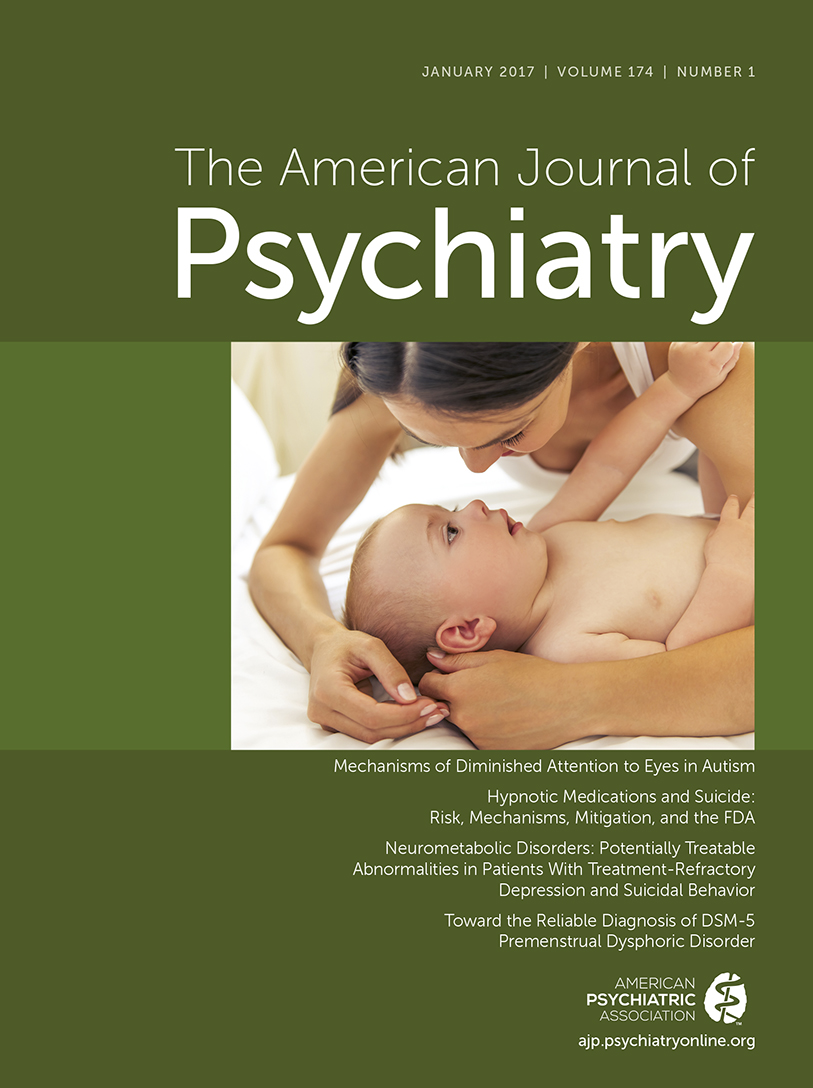Neurometabolic Disorders: Potentially Treatable Abnormalities in Patients With Treatment-Refractory Depression and Suicidal Behavior
Abstract
Objective:
Treatment-refractory depression is a devastating condition with significant morbidity, mortality, and societal cost. At least 15% of cases of major depressive disorder remain refractory to treatment. The authors previously identified a young adult with treatment-refractory depression and multiple suicide attempts with an associated severe deficiency of CSF tetrahydrobiopterin, a critical cofactor for monoamine neurotransmitter synthesis. Treatment with sapropterin, a tetrahydrobiopterin analogue, led to dramatic and long-lasting remission of depression. This sentinel case led the authors to hypothesize that the incidence of metabolic abnormalities contributing to treatment-refractory depression is underrecognized.
Method:
The authors conducted a case-control, targeted, metabolomic evaluation of 33 adolescent and young adult patients with well-characterized histories of treatment-refractory depression (at least three maximum-dose, adequate-duration medication treatments), and 16 healthy comparison subjects. Plasma, urine, and CSF metabolic profiling were performed by coupled gas chromatography/mass spectrometry and high-performance liquid chromatography electrospray ionization tandem mass spectrometry.
Results:
CSF metabolite abnormalities were identified in 21 of the 33 participants with treatment-refractory depression. Cerebral folate deficiency (N=12) was most common, with normal serum folate levels and low CSF 5-methyltetrahydrofolate (5-MTHF) levels. All patients with cerebral folate deficiency, including one with low CSF levels of 5-MTHF and tetrahydrobiopterin intermediates, showed improvement in depression symptom inventories after treatment with folinic acid; the patient with low tetrahydrobiopterin also received sapropterin. None of the healthy comparison subjects had a metabolite abnormality.
Conclusions:
Examination of metabolic disorders in treatment-refractory depression identified an unexpectedly large proportion of patients with potentially treatable abnormalities. The etiology of these abnormalities remains to be determined.



